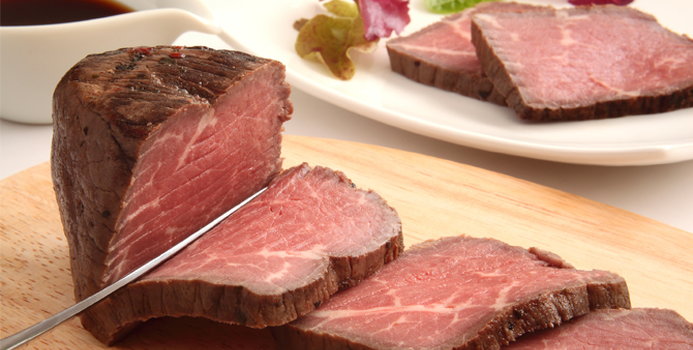Iron is essential for life. Not only is it found in proteins and enzymes, but it is responsible for cell growth and transporting oxygen throughout the body. Excessive or insufficient amounts however, may result in serious health issues.
Recommended Iron Intake
The Recommended Dietary Allowance (RDA), developed by the Institute of Medicine of the National Academy of Sciences, is the average daily intake sufficient to meet nutrient requirements of 98% of healthy individuals:
- Women, age 18-51: 18 mg/day
- Pregnant women: 27 mg/day
- Breastfeeding women: 10 mg/day
- Women, over the age of 51: 8 mg/day
- Men, age 19 and older: 8 mg/day
Heme vs Nonheme
Iron is found in two forms, heme and nonheme. Heme iron is found in animal foods, such as red meats, fish and poultry. Nonheme iron is the iron found in plant foods such as lentils and beans. Iron fortified foods are fortified with nonheme iron.
Iron Absorption
Iron absorption can be affected by various factors. Typically, healthy adults absorb about 10-15% of the iron they eat. However, if the body's iron stores are low, absorption will increase. Additionally, the type of iron consumed will affect absorptions. Heme iron is better absorbed than nonheme, though most foods contain nonheme iron.
Iron Rich Foods
Heme Sources:
- Liver
- Oysters
- Beef
- Turkey
- Tuna
Nonheme Sources
- Iron fortified ready-to-eat cereal
- Oatmeal
- Soybeans
- Lentils
- Beans
- Tofu
- Spinach
Iron deficiency/Anemia
Iron deficiency occurs when iron stores are low. If the body's stores do not meet daily iron needs, then this is referred to as anemia or iron deficiency anemia. According to The World Health Organization, iron deficiency is the number one nutritional disorder in the world. The National Institutes of Health reports, "As many as 80% of the world's population may be iron deficient, while 30% may have iron deficiency anemia."
Symptoms of iron deficiency include:
- Fatigue
- Weakness
- Decreased performance in work and school
- Difficulty maintaining body temperature
- Lowered immune function
- Inflamed tongue (glossitis)
Those who are most at risk for iron deficiency include:
- Pregnant women
- Women with heavy menstruation
- People with renal failure
- People with gastrointestinal disorders who may not absorb iron effectively
Individuals who participate in frequent, intense physical activity such as jogging, cycling and/or competitive swimming may also be at risk for deficiency. These athletes, especially vegetarians, may be deficient due to a greater turnover of red blood cells. For these people, iron needs may be 30% greater than the average person.
Increasing Absorption
For those who struggle with low iron stores, there are a few things that can be done to increase the body's absorption:
- Eat two iron rich foods together in one meal. Example: Lean beef with beans.
- Consume vitamin C with iron rich foods
- Cook foods in a cast iron skillet
If eating a meal with only non heme iron, avoid things with tannins (such as tea, coffee or wine) which can decrease absorption.
Iron Supplementation
For those who are unable to get adequate iron through their diet, supplementation may be necessary. It is important to be evaluated by a doctor before taking iron supplements in order to get a prescription that will be appropriate to individual needs.
Iron Overload
Iron overload occurs when there is excessive iron in the body. In this case, the body may store the surplus iron in organs such as the liver and heart which can lead to cirrhosis of the liver and/or heart failure. Unfortunately, iron overload is not usually identified until the organs have been damaged. People with the genetic disease hemochromatosis and people with blood disorders that require frequent blood transfusions are at greatest risk. Adult men and postmenopausal women do not typically need supplemental iron and could be at risk if ingesting too much iron. Unless advised by a physician, these individuals should avoid taking iron supplements.
Mandy Seay is a bilingual registered and licensed dietitian who holds both a bachelor's degree in nutrition and in journalism. After gaining 30 pounds while living abroad, Mandy worked to lose the weight and regain her health. It was here that she discovered her passion for nutrition and went on to pursue a career as a dietitian. Mandy currently works as a nutrition consultant and freelance writer in Austin, Texas, where she specializes in diabetes, weight management and general and preventive nutrition. She recently published her first book, Your Best Health, a personalized program to losing weight and gaining a healthy lifestyle. Please visit Mandy's website at Nutritionistics.com.



